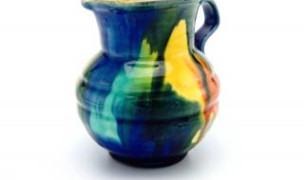 1 Terms
1 TermsHome > Industrie/Domeniu > Biologie > Immunology
Immunology
Immunology is the study of the structuree and function of the immune system which is responsible for the protection from invading foreign macromolecules or organisms. It is a broad branch of biomedical science that covers the study of all aspects of the immune system in organisms. It deals with the physiological functioning of the immune system in both healthy states and immunological disorders (autoimmune diseases, hypersensitivities, immune deficiency, transplant rejection); the physical, chemical and physiological characteristics of the components of the immune system in vitro, in situ, and in vivo.
Industry: Biologie
Adăugare termen nouContributors in Imunologie
Immunology
traductoare de semnal şi activators de transcriere
Biologie; Imunologie
Semnal traductoare şi activators de transcriere (STATs): a se vedea Janus kinases.
serotoninei
Biologie; Imunologie
Celule catarg la şoareci stoca serotonină mici mediatorul solubil în granule lor.
pulpă albă
Biologie; Imunologie
Zonele discretă țesutului limfoide în splină sunt cunoscute ca celulozei alb.
organul de-specifice
Biologie; Imunologie
O boală autoimună că obiectivele unui organ specifice este declarat a fi organul specifice.
Burkitt's lymphoma
Biologie; Imunologie
Burkitt's lymphoma este cauzată de virus Epstein–Barr (EBV) şi se produce în principal în Africa sub-sahariană.
celulă-suprafaţă imunoglobulină
Biologie; Imunologie
Celulă-suprafaţă imunoglobulină este receptorilor de celule b de antigeni. a se vedea, de asemenea, celule b receptorilor de antigeni.
neutropenia
Biologie; Imunologie
Neutropenia descrie situația în care există mai puţine neutrofile în sângele decât în mod normal.

